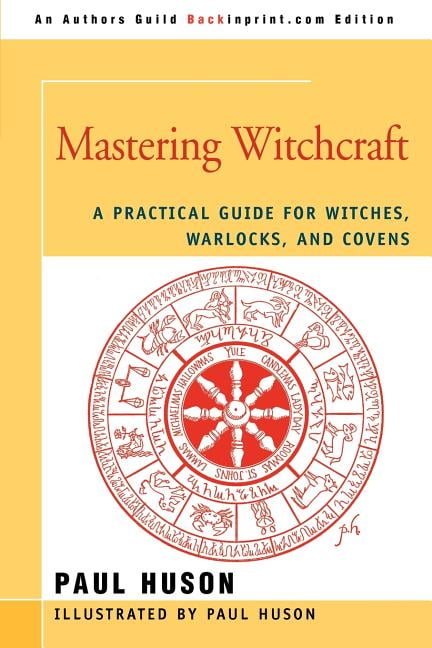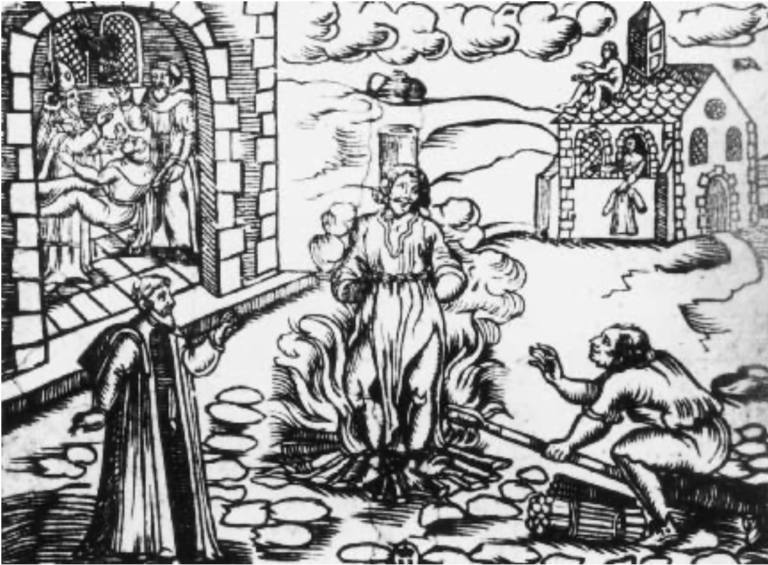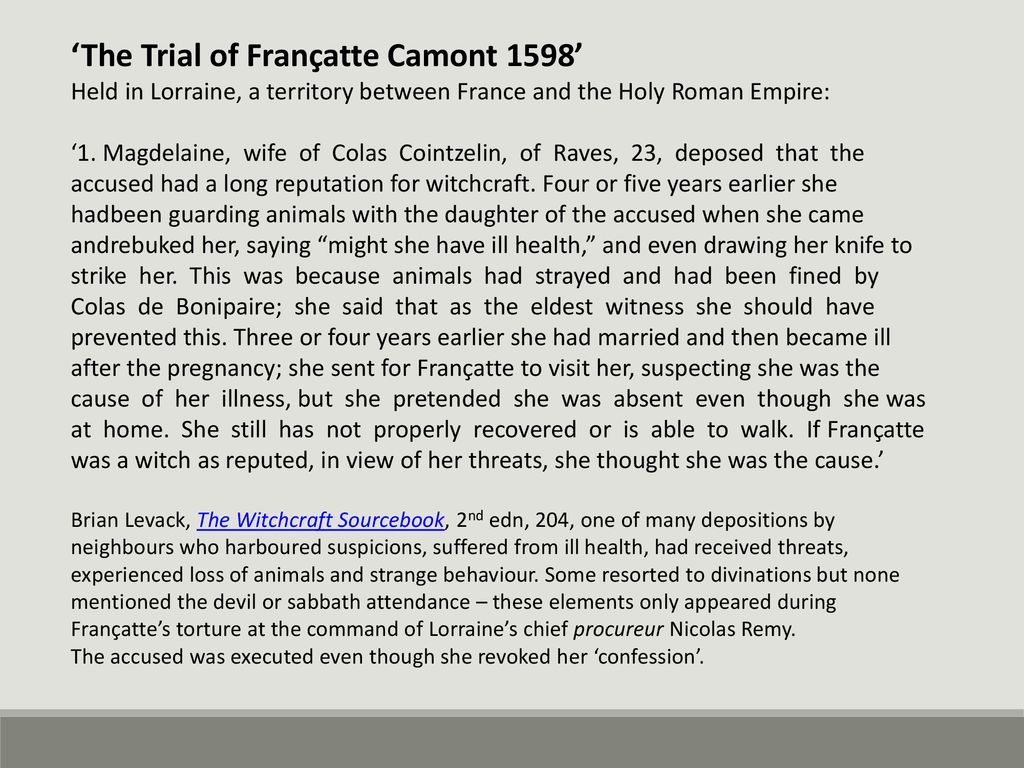

#The witchcraft sourcebook levack trial#
Parts IV and V contain legal documents on trying and punishing witches, as well as excerpts from trial records and witches' confessions. These are well known from recent and not so recent English translations but this is not the case for Pierre de Lancre's very important French account of witchcraft in the Basque-speaking province of Labourd in southwestern France (although a translation and new edition by Gerhild Scholz Williams is soon to appear), while the early Calvinist account of witchcraft by Lambert Daneau, translated into English a year after its publication in 1574, seldom finds its way into modern collections. A section follows on the elaboration of full-blown diabolical witchcraft by theologians, judges, and authors of demonological treatises, such as Henri Boguet, Nicolas Remy, Martin del Rio, and Francisco Maria Guazzo. The second section on the medieval foundations of witch-hunting includes familiar texts, but it is useful to have extracts from the trial of Dame Alice Kyteler in Ireland in the fourteenth century, and the important condemnation of magic and sorcery of the University of Paris from 1398.

#The witchcraft sourcebook levack series#
It begins with a series of texts from the ancient world such as the biblical story of the medium from Endor, the accounts of sorcery by Apuleius and Horace, St Augustine on demonic power, and some interesting curse tablets. A pleasing aspect of the collection is that none of the excerpts are excessively short, and even though necessarily reduced in order to ensure a fair spread of documentation in a single volume, the passages chosen are very representative and provide a good sense of the particular author's position or key arguments. Most are excerpts from demonological treatises and trial records, but a number of legal and literary sources are also included. The sixty-one documents range from the classical period through to the twentieth century, although the majority are dated between about 14, and only one is later than the repeal of the English and Scottish witchcraft statutes in 1736. While The Witchcraft Sourcebook inevitably includes a considerable number of documents found in modern editions or in other source collections, such as the revised 2001 edition of Witchcraft in Europe 400-1700, edited by Alan Kors and Edward Peters, it nicely complements these and introduces the reader to a number of not so easily accessible or newly translated sources.

An acknowledged expert in the field, Brian Levack is the author of The Witch-Hunt in Early Modern Europe, a book that after almost two decades still remains a most useful introduction to the field. This excellent collection of primary sources is clearly a response to the need to supplement scholarly research in books and articles with some of the key documentary sources for this area of study and will be of immense benefit in undergraduate teaching. This has led to a proliferation of undergraduate courses on the subject. Recent years have seen an explosion of academic research on the topic of witchcraft and witch-hunting in European history.


 0 kommentar(er)
0 kommentar(er)
